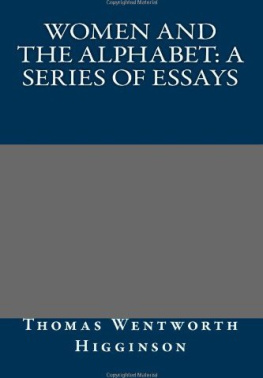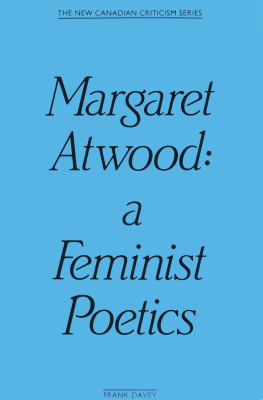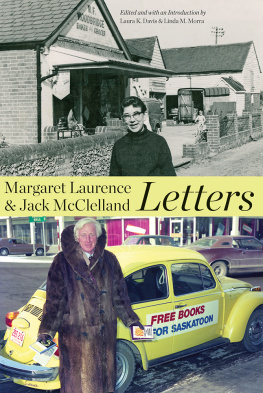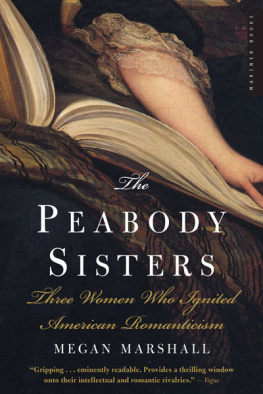Thomas Wentworth Higginson - Margaret Fuller Ossoli
Here you can read online Thomas Wentworth Higginson - Margaret Fuller Ossoli full text of the book (entire story) in english for free. Download pdf and epub, get meaning, cover and reviews about this ebook. year: 2011, publisher: Barnes & Noble, genre: Non-fiction. Description of the work, (preface) as well as reviews are available. Best literature library LitArk.com created for fans of good reading and offers a wide selection of genres:
Romance novel
Science fiction
Adventure
Detective
Science
History
Home and family
Prose
Art
Politics
Computer
Non-fiction
Religion
Business
Children
Humor
Choose a favorite category and find really read worthwhile books. Enjoy immersion in the world of imagination, feel the emotions of the characters or learn something new for yourself, make an fascinating discovery.
- Book:Margaret Fuller Ossoli
- Author:
- Publisher:Barnes & Noble
- Genre:
- Year:2011
- Rating:4 / 5
- Favourites:Add to favourites
- Your mark:
- 80
- 1
- 2
- 3
- 4
- 5
Margaret Fuller Ossoli: summary, description and annotation
We offer to read an annotation, description, summary or preface (depends on what the author of the book "Margaret Fuller Ossoli" wrote himself). If you haven't found the necessary information about the book — write in the comments, we will try to find it.
This 1884 volume in the American Men of Letters series presents the biography of Margaret Fuller Ossoli, better known as Margaret Fuller, a proto-feminist and leading transcendentalist. Drawing on her letters and papers, Higginson takes pains to show her as a woman of action as well as intellect.
Margaret Fuller Ossoli — read online for free the complete book (whole text) full work
Below is the text of the book, divided by pages. System saving the place of the last page read, allows you to conveniently read the book "Margaret Fuller Ossoli" online for free, without having to search again every time where you left off. Put a bookmark, and you can go to the page where you finished reading at any time.
Font size:
Interval:
Bookmark:
THOMAS WENTWORTH HIGGINSON

This 2011 edition published by Barnes & Noble, Inc.
All rights reserved. No part of this publication may be reproduced, stored in a retrieval system, or transmitted, in any form or by any means, electronic, mechanical, photocopying, recording, or otherwise, without prior written permission from the publisher.
Barnes & Noble, Inc.
122 Fifth Avenue
New York, NY 10011
ISBN: 978-1-4114-4729-5
I
INTRODUCTORY
I T has long been my desire to write a new memoir of Margaret Fuller Ossoli, a person whose career is more interesting, as it seems to me, than that of any other American of her sex; a woman whose aims were high and whose services great; one whose intellect was uncommon, whose activity incessant, whose life varied, and whose death dramatic. Thirty years having passed since the publication of her "Memoirs," it has seemed possible that a biography might now be written almost wholly from new or unused material, thus affording a positive addition to what was before known of her, and not a mere restatement of what was already before the public. In this aspect, at least, the effort has been successful, nearly every citation in the book being from manuscript sources; and the study of these materials having in all respects controlled the delineation here given of her life. Recognizing the great value of the portraiture already drawn of her character by the authors of the "Memoirs," and the excellence of Mrs. Howe's more condensed biography, I have sometimes ventured to vary from their estimate, and to rely on my own.
It so happened that Margaret Fuller was associated with me, not closely but definitely, by various personal ties. She was born and bred in the same town, though more than thirteen years older; she was the friend of my older sisters, and I was the playmate of her younger brothers; her only sister was afterwards closely connected with me by marriage, and came for especial reasons, with her children, peculiarly under my charge; and, though this was after Margaret Fuller's death, it yet contributed with all the other circumstances to make the Fuller family seem like kindred of my own. It moreover happened that Margaret Fuller had upon me, through her writings, a more immediate intellectual influence than any one except Emerson, and possibly Parker. All this guarantees that warm feeling of personal interest, without which no memoir can be well written, while there was yet too little of intimacy to give place for the glamour of affection. This biography may therefore serve as an intermediate step between the original "Memoirs"which gave the estimate offered by personal friendshipand that remoter verdict which will be the judgment of an impartial posterity.
The sources on which I have chiefly relied are (1) the five bulky volumes in possession of the Fuller family, into which a great variety of written material was transcribed by Rev. A. B. Fuller, after the publication of the "Memoirs,"and to which I have referred always as the "Fuller MSS."; (2) Margaret Fuller's letters to Mr. Emerson, kindly lent me by Mr. Emerson's executors; (3) her letters to Dr. F. H. Hedge, lent me by himself; (4) those to the Hon. A. G. Greene, of Providence, R. I., sent me by his daughter, Mrs. S. C. Eastman, of Concord, N. H.; (5) those to the Hon. George T. Davis, shown to me by his son, James C. Davis, Esq.; (6) many letters and papers of different periods, sent to me from London by the Rev. W. H. Channing; (7) Margaret Fuller's diary of 1844, lent by Mrs. R. B. Storer, of Cambridge; (8) her traveling diary in England and Scotland, which I own; (9) several volumes of Mr. A. Bronson Alcott's MS. diary; (10) a translation of her letters to her husband in Italy, the version being made by the late Miss Elizabeth Hoar, and lent me by her sister, Mrs. R. B. Storer. To this I may add a store of reminiscences from Margaret Fuller's old Cambridge friends. In the cases where I have used the same written material with the editors of the "Memoirs," the selections employed have been wholly different. A few printed books, issued since the publication of the "Memoirs," have given some aid, especially Horace Greeley's "Recollections of a Busy Life," Weiss's "Life of Theodore Parker," and the "Carlyle-Emerson Correspondence;" but the main reliance has necessarily been placed on material not hitherto made public; and to all the friends who have helped me to this I am profoundly grateful.
If my view of Margaret Fuller differs a little from that of previous biographers, it is due to the study of these original sources. With every disposition to defer to the authors of the "Memoirs," all of whom have been in one way or another my friends and teachers, I am compelled in some cases to go with what seems the preponderance of written evidence against their view. Margaret Fuller was indeed, as one of them has lately said to me, many women in one, and there is room for a difference of opinion even in assigning a keynote to her life. In their analysis, these biographers seem to me to have given an inevitable prominence to her desire for self-culture, perhaps because it was on this side that she encountered them; but I think that any one who will patiently study her in her own unreserved moments will now admit that what she always most desired was not merely self-culture, but a career of mingled thought and action, such as she finally found. She who, at the age of thirteen, met young scholars returned from Europe with enthusiastic vindications of American society against their attacks; she who, a few years after, read with delight all Jefferson's correspondence, was not framed by nature for a mystic, a dreamer, or a book-worm. She longed, as she herself said, to be a Pericles rather than an Anaxagoras; and she occupied her time with omnivorous study, with writing, with talking, with mysticism, while waiting for her career. In view of all this, I cannot resist the opinion that the prevalent tone of the "Memoirs" leaves her a little too much in the clouds, and gives us too little of that vigorous executive side which was always prominent in her aspirations for herself, and which was visible to all after she reached Italy.
I am the more led to say this because it is essential to the plan of the present series that I should dwell chiefly on her literary life, while knowing that this life was only preliminary, and that she would not have wished to be judged by it after she had once entered on the life of action. The following pages will, I hope, be a more adequate record than has before been given of what she did for our dawning literature; but they yet leave room for a book by some other hand that shall fully delineate the Margaret Fuller Ossoli who stood by the side of Mazzini in Italy, and whose hands the young patriots clasped in the hospital crying, "Viva l'Italia" as they died. At the very moment when Lowell was satirizing her in his "Fable for Critics," she was leading such a life as no American woman had led in this century before. During our own civil war many women afterwards led it, and found out for themselves what it was; but by that time Margaret Fuller Ossoli had passed away. Still, as I said, I must now make that part of her record secondary and dwell chiefly on its intellectual side; only keeping before my readers the fact that the best part of intellect is action, and that this was always her especial creed.
II
HEREDITARY TRAITS
"W E are never better understood," says Margaret Fuller in her fragment of autobiographical romance, "than when we speak of 'a Roman virtue,' 'a Roman outline.'" She goes on: "There is somewhat indefinite, somewhat yet unfulfilled in the thought of Greece, of Spain, of modern Italy; but R OME , it stands by itself a clear Word. The power of will, the dignity of a fixed purpose, is what it utters. Every Roman was an emperor." Tried by this standard, she herself may be said to have had a Roman parentage. An element of strength went through all her ancestry.
Font size:
Interval:
Bookmark:
Similar books «Margaret Fuller Ossoli»
Look at similar books to Margaret Fuller Ossoli. We have selected literature similar in name and meaning in the hope of providing readers with more options to find new, interesting, not yet read works.
Discussion, reviews of the book Margaret Fuller Ossoli and just readers' own opinions. Leave your comments, write what you think about the work, its meaning or the main characters. Specify what exactly you liked and what you didn't like, and why you think so.







